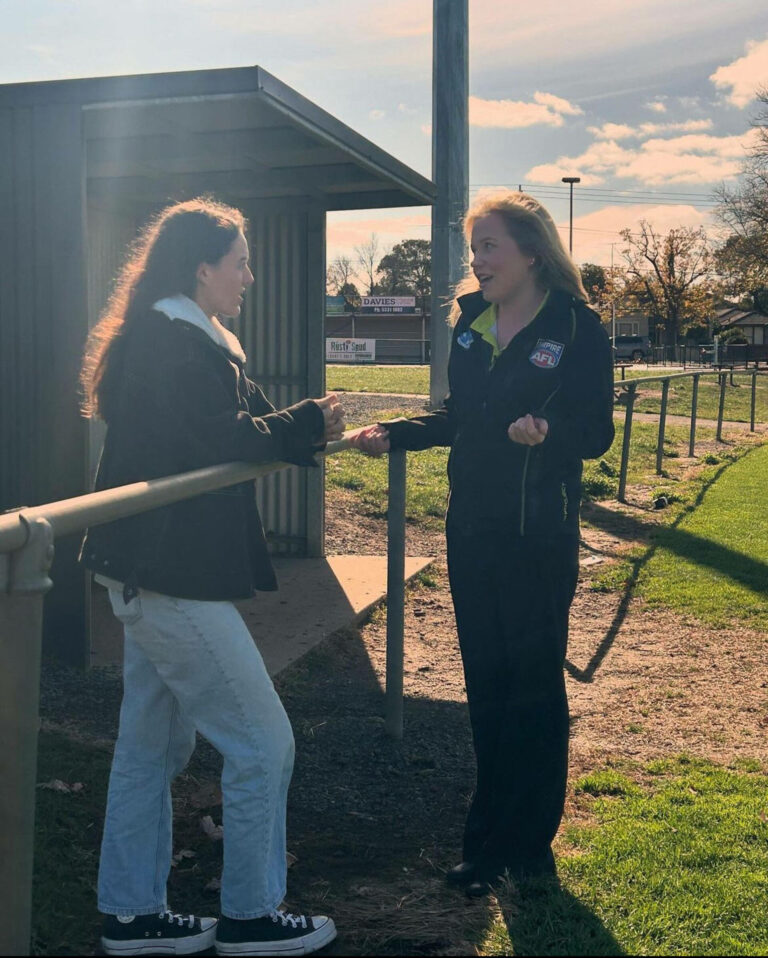Zoe Markos is producing, and co-directing a documentary about living with epilepsy. The producer, and host of popular podcast, Let Me Talk has been living with epilepsy since she was 12-13 years old but was officially only diagnosed three weeks before her 18th birthday.
Now 11 years later, she recently reached her three-year seizure free milestone and felt that it’s time to make a change for awareness of the condition.
In the documentary a character, whose friend has epilepsy, goes on a journey to learn more about her friend’s condition.
The documentary weaves around real-life stories of people living with epilepsy, and discussions with scientists medical professionals working to find a cure for epilepsy.
Markos said that they not making a clinical documentary, rather a more personal and human one, where the audience follows one’s story.
“We are trying to make that gap between society and people with epilepsy smaller, so then those people that have epilepsy feel safe around people and know that people know enough about their condition,” she told Neos Kosmos.

“We don’t just want it to be a documentary that’s nice and sweet. We want to make it that it’s going to wake you up and it’s going to make you want to do something about it and to learn more about it.
“Especially schools and teachers and people that are in a duty of care role. Not that it’s necessarily their fault, but we want them to be more aware. We want them to have that moment of, ok, this is actually serious.”
According to the Epilepsy Foundation, who Markos and the crew are working together with for the documentary, one in 25 people will be diagnosed with epilepsy in Australia.
Co-director Mustafa Ali said the aim is for this documentary to be screened in schools, universities and other professional fields.

“You don’t just learn about epilepsy, but you also learn about the mental health side, how it affects people when they’re at work, how it really brings them down, how it can stress them, how they feel judged,” Ali told Neos Kosmos.
He admitted that when Markos reached out to him about making the film, he didn’t know much about the condition, despite previously being a youth worker.
Ali said he looked it up and saw what’s out there and believes there isn’t enough information.
“I’ve known Zoe for a few years now and if she gets an epileptic attack, what do I do?”
“Even though I’ve worked in the past as a youth worker and I’ve done my first aid, my suicide aid, I’ve worked with kids that are out of home care and child protection, but we’ve never trained for epilepsy.”

A stark revelation that shows that a documentary like this is needed, for a brain disorder that not even some caretakers are properly trained for.
One interesting thing the two directors wanted to note was that the people that came forward to participate in the documentary are predominantly female.
“Males, they’re afraid to talk about it. They can’t drive, they lose a job or they get judged or they’ll be unfit fathers. Plus in Australia there isn’t much support for mental health for men,” Ali said.
He revealed they had a chat with a doctor away from cameras who brought the fact and said males are the ones that suffer a lot because they don’t speak about it and it’s a hush-hush for them due to mental health and no support.
But when it came to an interview on camera, the doctor didn’t want to talk about it.

“I don’t know why, but no one really wants to mention it or talk about it.”
“Epilepsy, it’s a normal diagnosis, it’s not a shame.
“(Almost) no males came forward and that’s telling. We are trying to find a way to bring that up too so it makes sense,” Markos added.
Markos plans to have an exclusive private screening event, which will include a fundraising and cocktail evening later this year.
A GoFundMe page has also been set up to donate toward the project with 10 per cent of money raised going toward the Epilepsy Foundation.










